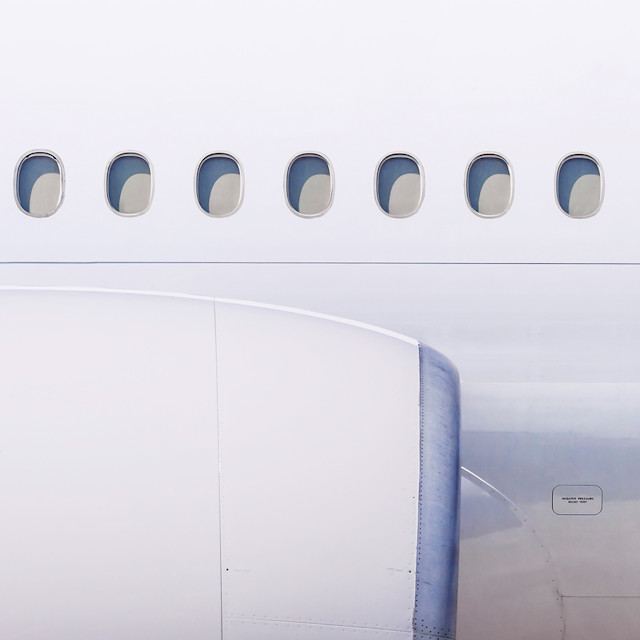A sleep expert breaks down how to prevent jet lag from hampering your marathon performance this fall.
Once you've checked New York and Boston off your marathon bucket list, you likely have your sights set on competing in high-profile races across the globe. And, thanks to high-speed planes, you can arrive in London, Berlin, Dublin, or Tokyo without much downtime.
But rapid international travel often leads to jet lag — a phenomenon in which your internal biological clock doesn’t sync with the local time in your destination, says Rebecca Robbins, Ph.D., a sleep scientist, assistant professor at Harvard Medical School, and certified yoga instructor who teaches at Equinox in NYC, Boston, and CT.
With jet lag often comes symptoms such as daytime fatigue, difficulty focusing, sleep problems, and stomach issues, according to Sports Medicine. These side effects can be uncomfortable while exploring, say, ancient ruins or crowded city centers, but they can also impact athletic performance, becoming detrimental if you’re participating in a 26.2-mile race.
The good news: There are steps you can take to minimize jet lag’s impact on your mind and body so you can finish the Amsterdam, Frankfurt, and other fall marathons with a PR. Here’s what to know.
How Jet Lag Affects Your Body and Mind
Located within your brain’s hypothalamus, the suprachiasmatic nucleus is the central pacemaker for your internal biological clock, says Robbins. “That system is associated with the secretion of hormones that are related to our fundamental ability to be tired, to fall asleep, to wake up, and to perform at our peak,” she explains. “And that clock is not something that can move on a dime — it takes optimally anywhere between two to three weeks to transition fully to a new time zone.”
After traveling across time zones, when the 24-hour clock in your brain conflicts with the clock on the wall, known as circadian desynchrony, you’re likely to experience sleep disruptions that can reduce cognitive performance, says Robbins. You’re also likely to have trouble focusing and to be emotionally reactive, she notes. Specifically, athletes competing in international events soon after changing time zones have been found to have reduced motivation and performance during complex mental activities, as well as a feeling of lethargy, according to research published in Sports Health.
The more time zones you cross, the more intense and longer-lasting your jet lag symptoms will be, according to Sports Medicine. And traveling east is often harder on the body than going west. If you’re flying west over eight time zones (read: you’re “gaining” time), your performance will likely be impaired in the evening and you’ll wake up at an earlier hour than usual the next morning. But if you’re flying east over eight time zones (read: you’re “losing” time), your performance will be blunted in the early afternoon. You’ll also have more difficulty falling asleep at your typical bedtime and you’ll sleep in later the next day, per Sports Medicine. Depending on your start time, your direction of travel could make or break your race.
How to Minimize Jet Lag’s Side Effects
One of the key tactics to overcoming jet lag quickly is to arrive at your marathon location as early as possible, says Robbins. “Being exposed to the new destination, the new pattern of sunrise and sunset in your environment, the food, and the customs is just vitally important, especially when you're talking about high-performance athletes,” she adds.
Ideally, you’ll begin preparing for your trip one to two weeks in advance by gradually moving up your bedtime, says Robbins. If you live in Boston and are flying to London, for instance, go to bed 15 minutes earlier each night to slowly help your body transition to the new time zone, she suggests. “That preparation, after a full week or two weeks, would allow you to get a one- or two-hour shift in the direction of your destination's time zone,” she says. “That will facilitate your transition when you get to your destination.”
Although red-eye flights are tempting, they can exacerbate jet lag’s symptoms, thanks to the late-night beverage and dinner service and the uncomfortable seats that can impair sleep quality, says Robbins. Instead, opt for a mid-day flight that allows you to arrive at your destination in the early to mid-afternoon, she recommends. That way, you’ll be able to score some afternoon sunlight in your destination and get to bed early, she adds. By the next morning, you’ll feel more adjusted to the new time.
Exposing yourself to sunlight upon arrival is essential. “If you haven't been preparing for the transition to your new destination and your internal clock is still set to east coast time, go walk around outside London when your red-eye flight lands at 7 a.m.,” says Robbins. “...Exposure to natural sunlight is the strongest input to our internal rhythm and our ability to change our internally dialed clock, sleep times, and wake times.”
Throughout your trip, try your best to avoid heavy dinners and late-night cocktails, which will help you ease into an earlier bedtime if you’ve traveled eastward, suggests Robbins. Importantly, make sure your hotel room is set up for a successful night of sleep: Keep the room dark and cool, and try to block out any noise that may keep you awake. By taking these measures, you’ll walk up to the race starting line feeling mentally alert and physically confident — not yearning to crawl back into bed.
